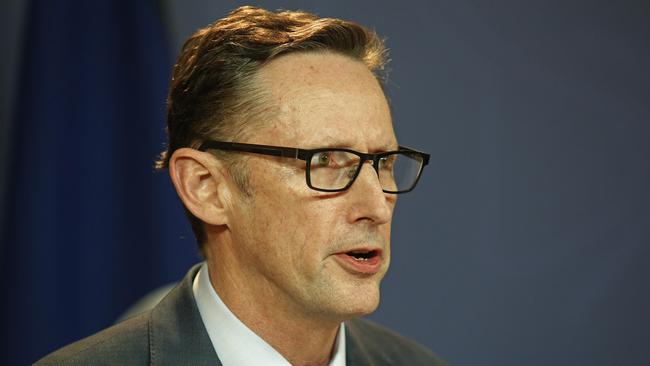‘Timeline not achievable’: small business alarm over payday super
COSBOA says Labor’s payday super policy is a disaster waiting to happen and the cost to employers to change and adapt ‘will be immense’.

The peak small business body says Labor’s payday super policy is a disaster waiting to happen and the cost to employers to change and adapt “will be immense”.
In a letter to Assistant Treasurer Stephen Jones, the Council of Small Business Organisations Australia sounded the alarm over a lack of a proper impact assessment and unrealistic timeline to achieve the change, which would force employers to pay their employees super and salary at the same time.
“We are 21 months since that announcement was made (but) we are yet to see what has been drafted into the legislation. Apparently the draft is final but it has not been discussed with stakeholders,” COSBOA chief executive Luke Achterstraat said in the letter, seen by The Australian.
“There is no confidence in the business, software (and) adviser community that concerns about the implementation of the policy as stated – (such as) the financial impact on businesses, the cost of change, the technical changes to software, gateways, superfunds – have been considered.”
Mr Achterstraat said delivering payday super would come at “a significant cost” to Australian businesses, their payroll software providers, super funds and the Australian Taxation Office.
“The cost to employers to change and adapt and implement will be immense. The additional cost to software providers will also be considerable and hence will result in increased cost to subscriptions and increased cost to doing business,” he said.
“We need a true impact assessment that presents the proposed benefit of payday super to employee super balances, the cost to implement payday super across all stakeholders, the economic impact on businesses with the change from super being paid quarterly to a payday super regime from 1 July, 2026.”
He said the timeline to implement the policy was “not achievable”, given parliament had not even started debating legislation, and there was “no longer sufficient time for payroll software (and) super funds to invest in technology changes required to support payday super”.
“Pushing ahead with the previously announced date will expose the government to negative and critical industry commentary,” he said.
Mr Jones, who is retiring before payday super is due to be implemented, said the industry was being given plenty of time for the overhaul. “This is a whole-of-economy change which is why we have given industry three years to transition to the new payment cycle,” he said.
“Legislation will shortly be released for consultation which will still give industry almost 18 months to prepare for this important reform.”
Mr Jones said the policy would address the “scourge of unpaid superannuation”.








To join the conversation, please log in. Don't have an account? Register
Join the conversation, you are commenting as Logout